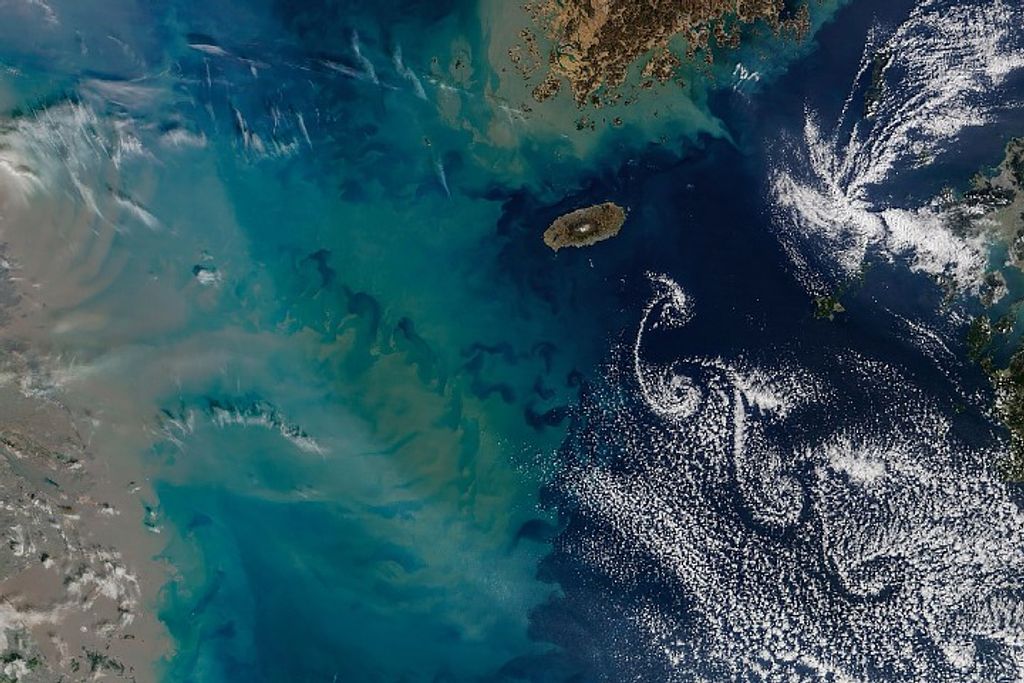
Mary Beth Wilhelm
Research Scientist
Affiliation: NASA Ames Research Center: Space Science and Astrobiology Division, Code STT
Email: marybeth.wilhelm@nasa.gov
Professional Biography
Dr. Wilhelm is an astrobiologist and planetary scientist at NASA Ames Research Center conducting research on biomarker preservation on Mars, where she has now worked for over 19 years. On Earth, she’s conducted over a decade of research in Mars analog environments in the Atacama Desert, Chile, Iceland, and Antarctica to name a few. She is leading the development of new technology and missions to search for life on Mars, specifically targeting molecular fossils left behind from the most habitable early time period on the red planet.
She grew up outside in Chicago, IL until her family moved to Fremont, CA in Silicon Valley during the dot-com boom and has been interested in planetary science since she was six years old. She graduated from Saint Francis High School in Mountain View, CA in 2008, and started working at NASA Ames Research Center as a high school intern in 2006. In 2009, she became the youngest Civil Servant hired into the Planetary Systems Branch. Dr. Wilhelm received her Bachelor’s from Cornell University and Ph.D. from Georgia Tech in 2017 in Earth and Planetary Sciences. She is an Associate Editor of the journal Astrobiology, and a recipient of a 2025 Presidential Early Career Award for Scientists and Engineers (PECASE).
Watch Mary Beth’s interview on NBC’s Today
Education
Ph.D., Georgia Institute of Technology, Atlanta, GA: 2017
School of Earth & Atmospheric Sciences
Major: Planetary Science
Minor: Biochemistry
B.A., Cornell University, Ithaca, NY: 2012
Major: Earth Systems, Planetary Science Concentration, & College Scholar
Minor: Dance
Research Interests
Biomarker preservation in terrestrial analog environments
Extremophiles
Search for life on Mars
Technology development for search for life
Select Publications
Dr. Wilhelm has authored and co-authored 18 scientific papers in the peer-reviewed literature and currently has an H-index of 26. Selected peer-reviewed papers are provided below.
- Buckner, D. K., Anderson, M. J., Wisnosky, S., Alvarado, W., Nuevo, M., Williams, A. J., … & Wilhelm, M. B. (2024). Quantifying Global Origin-Diagnostic Features and Patterns in Biotic and Abiotic Acyclic Lipids for Life Detection. Astrobiology, 24(1), 1-35.
- Rodriguez, A., Wilhelm, M.B., Travis, B., Kargel, J., Zarroco, M., Barman, D., Cohen, J., Baker, V., Buckner, D., Lopez, A., (2023). Exploring the Evidence of Aquifer-Fed Middle Amazonian Sedimentary Outbursts in a Martian Chaotic Terrain. Nature Scientific Reports.
- Rodriguez, J.A.P., Dobrea, E.N., Kargel, J.S., Baker, V.R., Crown, D.A., Webster, K., Berman, D.C., Wilhelm, M.B., Buckner, D. (2022), The Oldest Highlands of Mars May Be Massive Dust Fallout Deposits. Scientific reports, 10(1), 1-15.
- Cockell, C.S., Wilhelm, M.B., Perl, S., Wadsworth, J., Payler, S., Paling, S., Edwards, T., McMahon, S. (2020). 0.25 Ga salt deposits preserve signatures of habitable conditions and ancient lipids. Astrobiology.
- Wilhelm, M.B., Davila, A.F., Parenteau, M.N., Jahnke, L.J., Abate, M., Cooper, G., Kelly, E.T., Parro, V., Villadangos, M.G., Blanco, Y., Glass, B., Wray, J.J., Eigenbrode, J.L., Summons, R.E., Warren-Rhodes, K. (2018). Constraints on the metabolic activity of microorganisms in atacama surface soils inferred from refractory biomarkers: implications for martian habitability and biomarker detection. Astrobiology, 18(7), 955-966..
- Mogul, R., Vaishampayan, P., Bashir, M., McKay, C., Schubert, K. E., Bonaccorsi, R., … & Wilhelm, M.B. (2017). Microbial Community and Biochemical Dynamics of Biological Soil Crusts Across a Gradient of Surface Coverage in the Central Mojave Desert. Frontiers in Microbiology, 8, 1974.
- Wilhelm, M.B., Davila, A.F., Eigenbrode, J.L., Parenteau, M.N., Jahnke, L.L., Liu, X.L., Summons, R.E., Wray, J.J., Stamos, B.N., O’Reilly, S.S. and Williams, A., 2017. Xeropreservation of functionalized lipid biomarkers in hyperarid soils in the Atacama Desert. Organic Geochemistry, 103, pp.97-104.
- Ojha, L., Wilhelm, M. B., Murchie, S. L., McEwen, A. S., Wray, J. J., Hanley, J., … & Chojnacki, M. (2015). Spectral evidence for hydrated salts in recurring slope lineae on Mars. Nature Geoscience, 8(11), 829-832.
- Wilhelm, M.B. and Hewson I. (2012). Characterization of thrombolitic bioherm cyanobacterial assemblages in a meromictic marl lake (Fayetteville Green Lake, New York). Geomicrobiology Journal 29:8.
Select Awarded Proposals
- “Extractor for Chemical Analysis of Lipid Biomarkers in Regolith (ExCALiBR)”, (Principle Investigator), he Maturation of Instruments for Solar System Exploration (MatISSE) Program, NASA Science Mission Directorate FY25-27
- TATOOINE: Testing Arid Transformation of Organics via IN-situ Extraction” (Principle Investigator), The Planetary Science and Technology from Analog Research (PSTAR) program, NASA Science Mission Directorate FY25-27
Patent
Extractor for chemical analysis of lipid biomarkers
MB Wilhelm, AJ Ricco, MJ Anderson, LL Jahnke, KU Sridhar, DK Buckner
NASA Missions
Mars Science Laboratory Curiosity Science Team Member
Awards & Others
- 2025 Presidential Early Career Award for Scientists and Engineers (PECASE): the highest honor bestowed by the U.S. government on outstanding scientists and engineers early in their careers.
- 2023 Tim Lee Early Career Award, NASA Ames Space Science and Astrobiology Division
- 2022 NASA Honor Award Silver Group Achievement Medal: establishing NASA’s newest visitor center at Chabot Space and Science Center
- 2021 NASA Ames Early Career Researcher Award
- 2020 NASA Ames Honor Award: Group/Team for ExCALIBR
- 2020 NASA Science Directorate Superior Accomplishment Award
- 2020 NASA Group Achievement Award: The Atacama Rover Astrobiology Drilling Studies Project Team
- 2017 NASA Ames Honor Award: First Best Paper
- 2016-2017 P.E.O International Scholar Award Recipient
- 2013-2016 NSF Graduate Fellowship Recipient
- 2014 NASA Astrobiology Early Career Collaboration Award
- 2013 Lunar & Planetary Institute Career Development Award
- 2012-2015 Georgia Tech President’s Fellowship
- 2010-2012, Cornell University Presidential Research Scholar
- 2007 NASA Ames Honor Award: Student
- Mars Program Office Mars Returned Sample Safety Assessment Protocol Tiger Team (SSAP-TT): Fall 2023-Spring 2024
- Mars Exploration Program Analysis Group (MEPAG): Mars Concurrent Exploration Science Analysis Group (MCE-SAG): Selected Member: Summer 2022

























